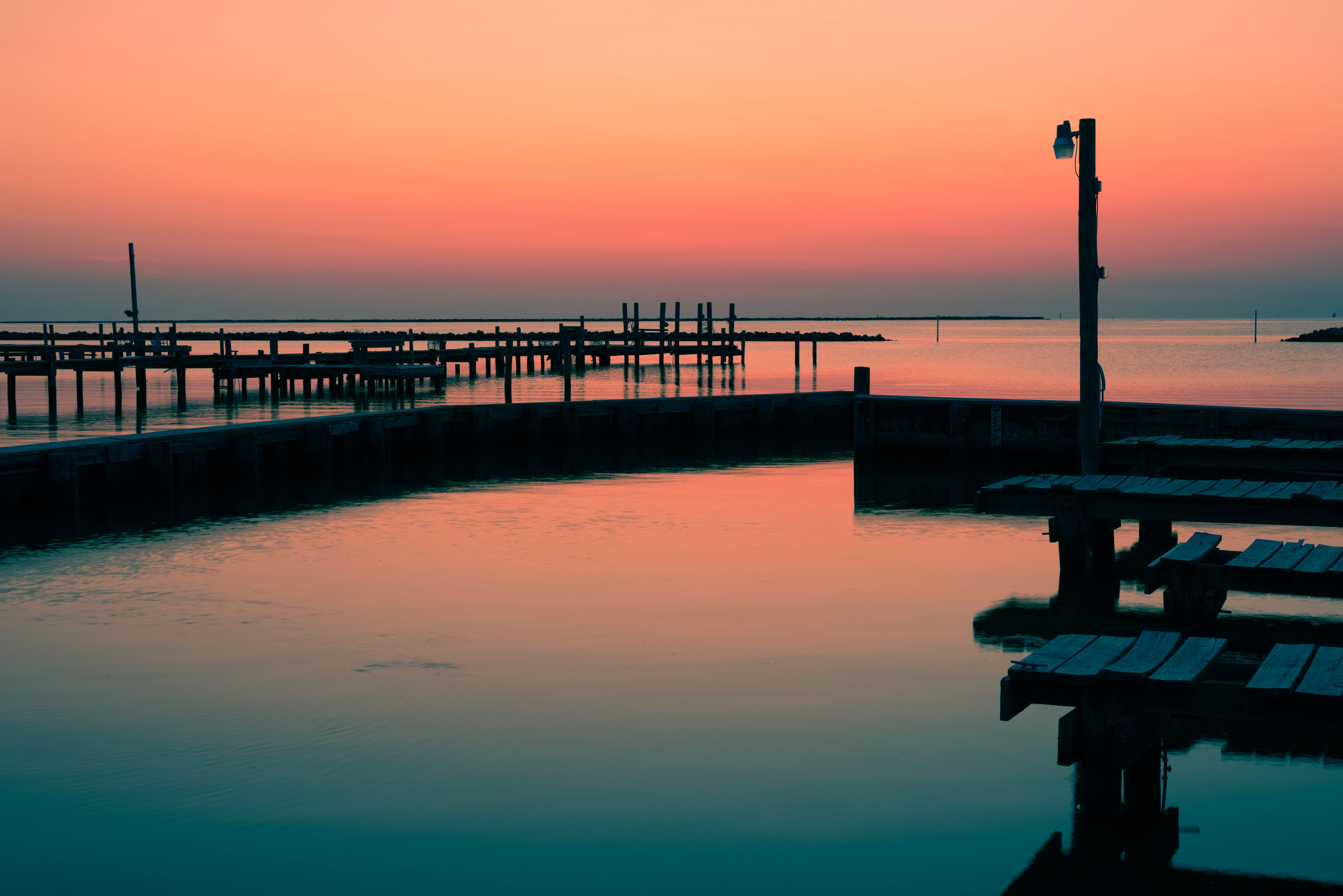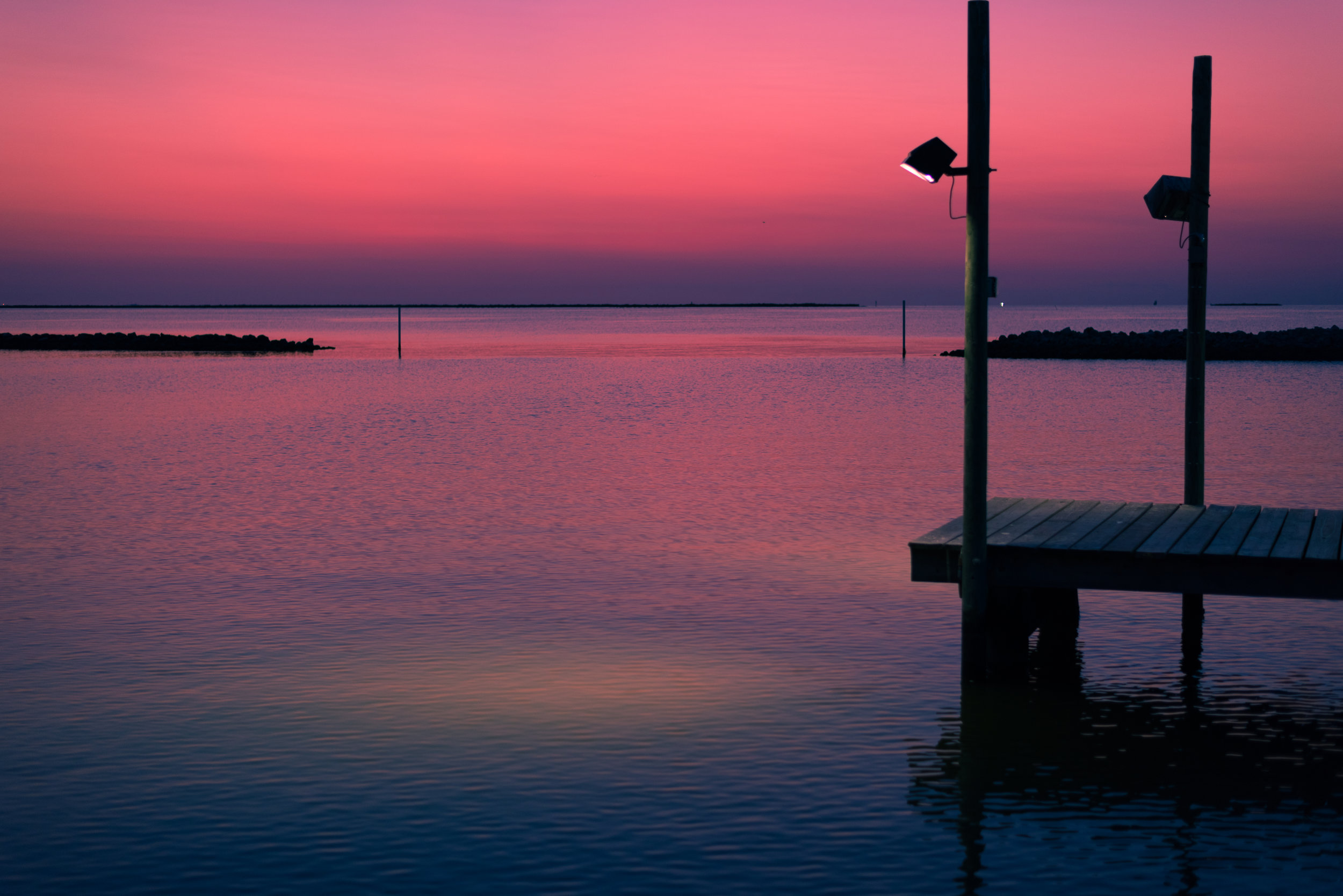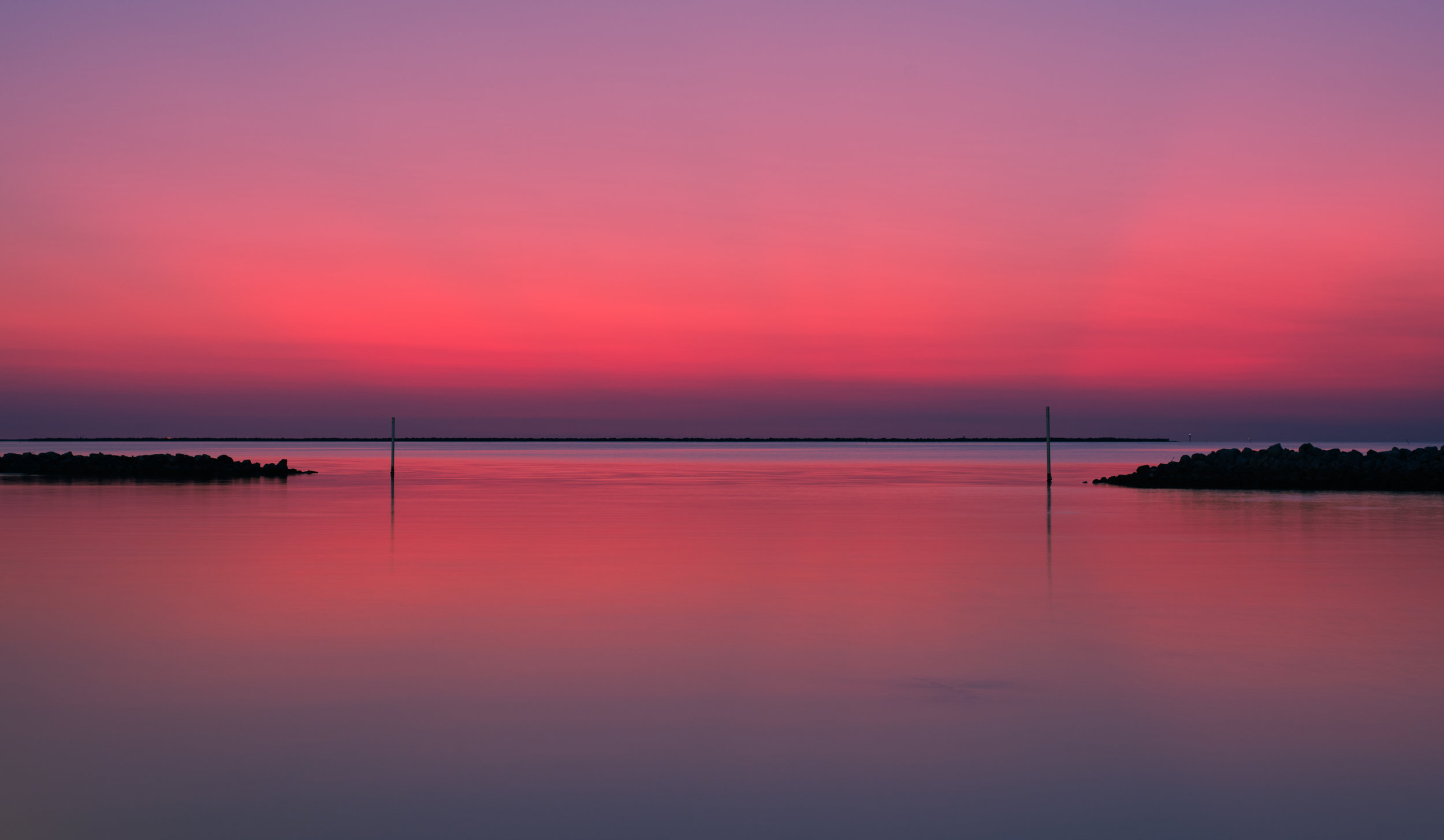In the loose sense that I could always find some novels or movies that set in the same places that I visited, pretty much all the trips I went on had some “bookpacking” characteristics to it. For example, the vast prairie in Inner Mongolia reminded me of Wolf Totem (狼图腾) written by Jiang Rong; the forests of Khingan Mountains reminded me of Tracks in the Snowy Forest (林海雪原) by Qu Bo; going to New Zealand and realizing “wow they filmed Lord of the Rings here”. However, none of my previous experiences was driven by those works of literature and art. They were just sweet additions to the trip, some little “oh I remember that!” moment. So strictly speaking, this is my first ever genuine bookpacking trip. Instead of going to a place and try to think of novels that set there, we reverse that thought process and follow the footsteps of characters in great novels, actively seeking and unpacking the culture and history of that place through literature. The attitude changes from that of a passive observer to an active seeker. That is what makes this trip invaluable.
Not only did I came to Louisiana for the unique bookpacking experience, I also came to get out of my comfort zone, to discover the other side of me. Quite frankly, I am the opposite to someone who enjoys literature. I’m pretty insensitive. There is no trace of romance in my head. I think in terms of costs and benefits, not in terms of feelings and emotions. Unlike all my fellow bookpackers whose blogs are filled with lines as poetic as “ finding something absolutely mesmerizing about watching the waves crash into the ocean” (I quoted from Ciannah : ), I simply adjust the settings on my camera, took the pictures and leave, wasting no time staring at the sea. As romantic as it sounds to read on the beach, I hate to get sand on me. And actually, I feel more at ease when I have a tight schedule at school because I have everything planned out and I know exactly what to do at what time. Memorize math equations and nail multiple choice questions are my specialties; creative thinking and writings are my absolute nightmares. I enjoy reading academic journals and argumentative books; I suck at reading novels or poems or prose. As a result, my language is as dry as you see right here. Sounds horrible huh? So at some point of the last semester, I decided that it was high time to make a change. Then I applied for this program--without any high expectation of getting in, of course. After all, I’m a math major freshman from China. My whole application probably looks like a prank to the professor. Then sometime later, quite surprisingly, I got accepted. What was funnier was my first meeting with Andrew. He gave me a sort of embarrassed smile and told me that I can get the whole king-size bed all to myself. At first, I was like “damn bro this is awesome!”. But later on I starter shivering and got scared: “on man I’m going to live alone! There’s no vampires or anything in Lafayette Hotel right?”
Prior to the trip, I was nervous not only because I’m the only boy, but also because I’m quite illiterate, I would say, comparing to all my travel companions. This fact was manifested later on when we had a group discussion about The Awakening. From the beginning till the end, I was shocked by their deep understanding of the novel and the richness of their interpretations. When they were discussing the different symbolisms used in the novel, my understanding was still as shallow as whether the protagonist was mad. Plus the fact that I had a serious cold right at the beginning of the trip, my mind was all over the place (I guess in this sense I did successfully get way out of my comfort zone. I almost coughed my brain out to the oil rigs in Mexico Gulf). Nonetheless, I enjoyed the entirety of the trip right from the beginning.
The first thing I want to talk about is, of course, food--one of the most essential part of human life beyond any doubt. Right when we stepped outside of the airplane, there was advertisement of food everywhere--much more than any other airports I went to. Even with the definite confirmation bias coming from my hunger, I still found the food advertisements to be extremely excessive. In fact, I appreciate this a lot. One of my favorite documentary was A Bite of China by CCTV. Each episode of it gradually unfolds a part of the Chinese cultural through food. “Food”, in this sense, is not simply what’s in the plates and bowls. It represents the larger life philosophy of people in that culture, their relationship with nature, their interpretation of the environment, and their legacy through history. It a entire human-nature dynamic that represents arguably the most important facet of our life. From the selection and preparation of ingredients, to spices, to culinary methods, to how it was finally served, every single aspect of the food is like a condensed mirror that reflects the culture it sets in.
One fantastic example to demonstrate this is crawfish. Both Southern China and Louisiana are huge consumers of crawfish (based on my personal experience. I don’t have statistical data of any kind, but damn do people love to have spicy crawfish during the summer in China), however, how crawfish is cooked is vastly different. In Louisiana, I’ve had crawfish stewed with shrimps in “seafood gumbo” soup; crawfish smothered in cajun sauce and served over rice as “crawfish Étouffée”; served as the main ingredients of “crawfish omelet”; served as embellishments in “shrimps and grits”, etc. All of those are vastly different from how crawfish is cooked in China: stir-fried (with shells attached) with all kinds of spices including red pepper, Sichuan peppercorn, garlic, green onion, Chinese chili bean sauce, etc. Therefore, the same exact ingredient from preparation (peeled vs. whole), to spice selection, to the culinary method (stew vs stir-fry), to how it is served (eaten with containers and utensils vs. eaten with hands and chopsticks) was completely different. It’s always fascinating to see how food is prepared differently in different cultures. When I was in Rhode Island, their signature dish was the extremely creamy clam chowder with oyster crackers and the breadcrumb stuffed “clam casino”. Coming over to the pacific coast, I had seafood ceviche for the first time which has a whole new taste I’ve never imagined to go with seafood. The sourness of the ceviche almost remotely reminded me of Ethiopian cuisine, with their sour-tasting fermented injera almost threw me off the chair the first time I had it. Down here in Louisiana though, I found a more subtleness in the use of spices. It’s more balanced and less extreme. In the shrimp and grits I had, I could taste many different spices all in harmony with each other, and none of them surpassing the original taste of shrimps themselves. Although sometimes the poorly cooked seafood gumbo tastes too excessive on salt and pepper, they never let the taste of spices take over the taste of the main ingredients. Even the pan-seared fish I had on Friday (I forgot what fish specifically) had just enough flavor to not be tasteless and accurately recreate the tenderness and freshness of the fish meat. It almost seems that there is this ideology in New Orleans cuisine to never let any one flavor predominate (Or, if there has to be one, let it be the taste of the original food). I’m certainly far from having had nearly enough food to make any conclusions, but I think there is a vague pattern already emerging here.
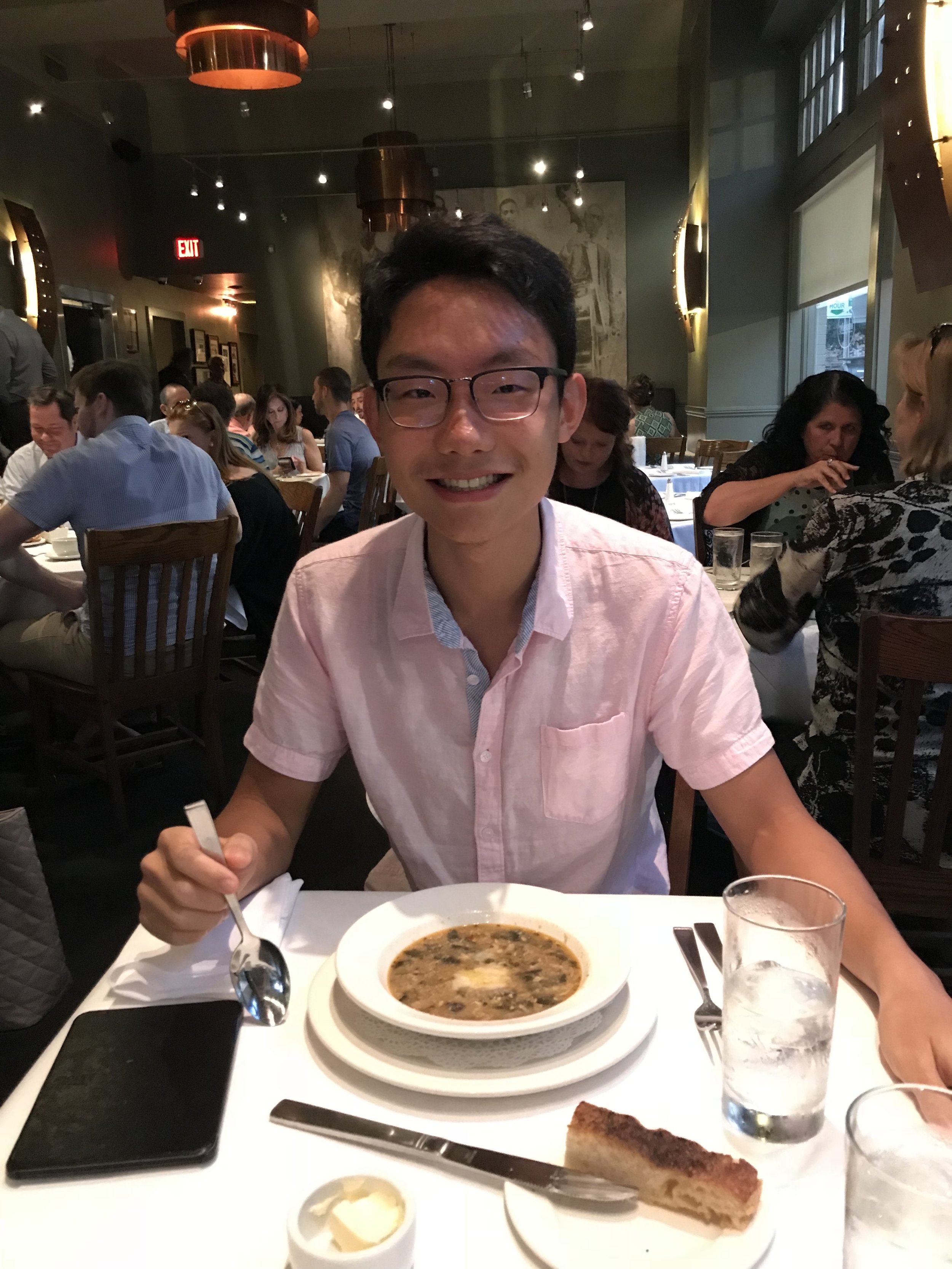
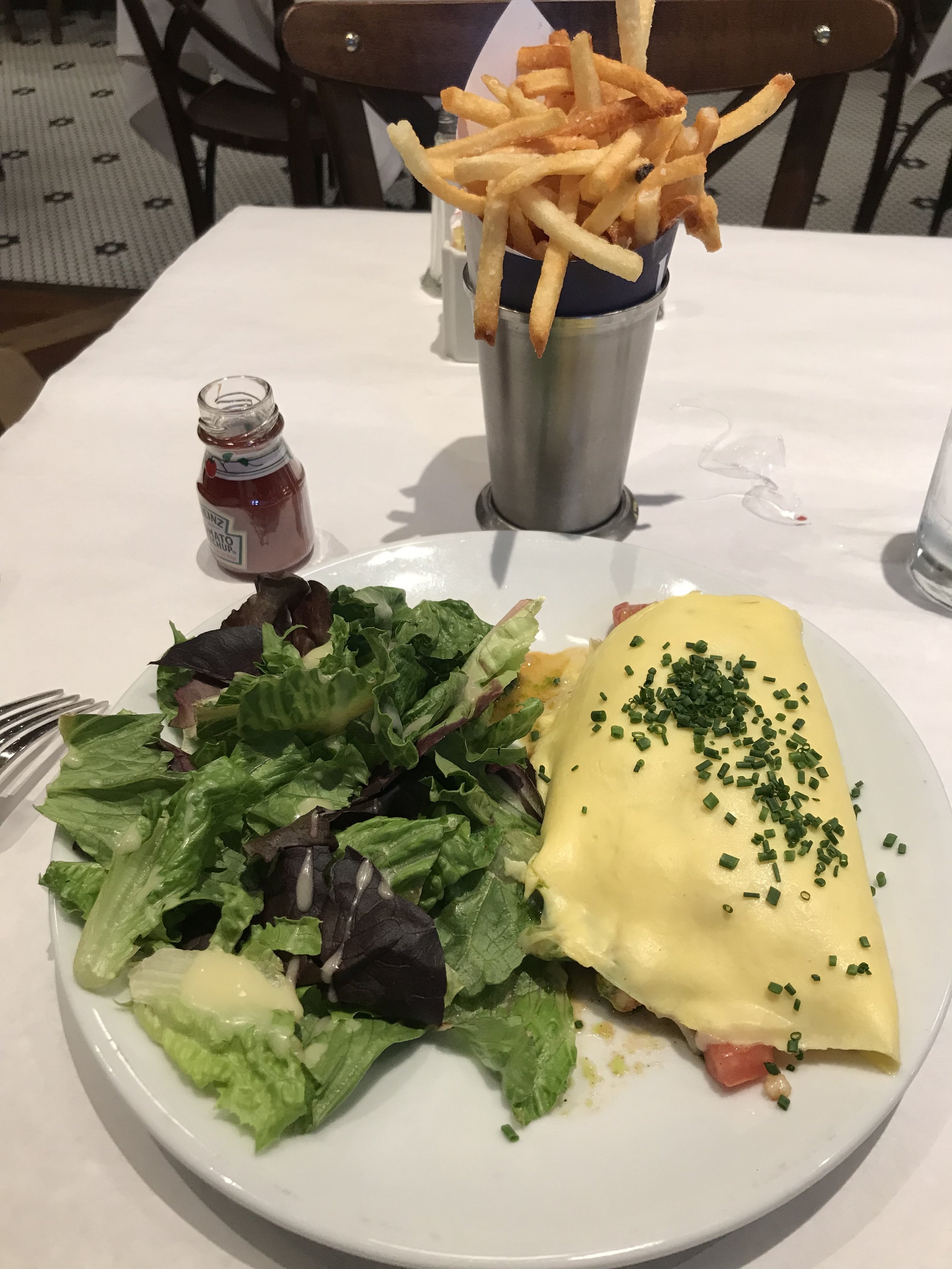
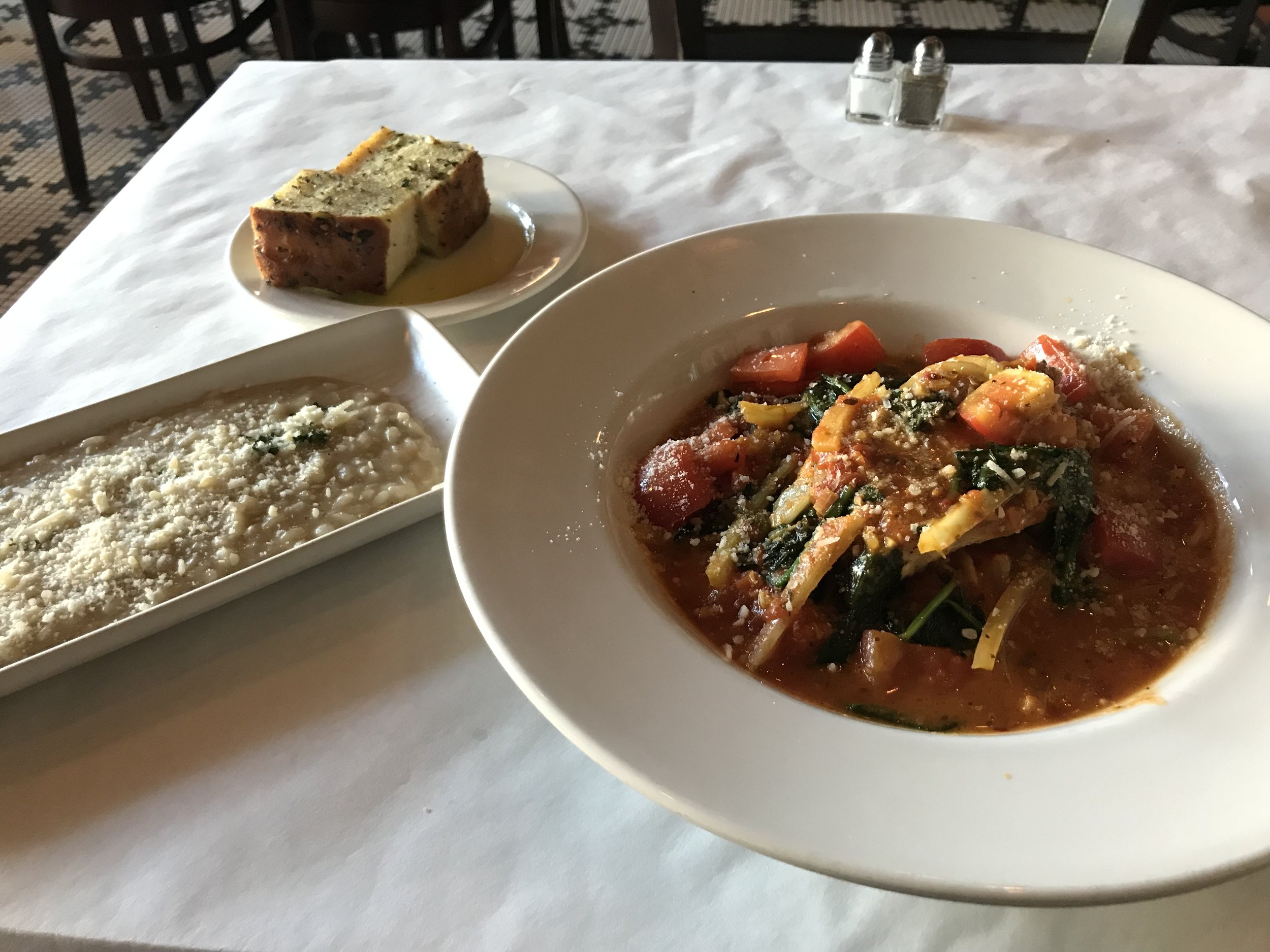
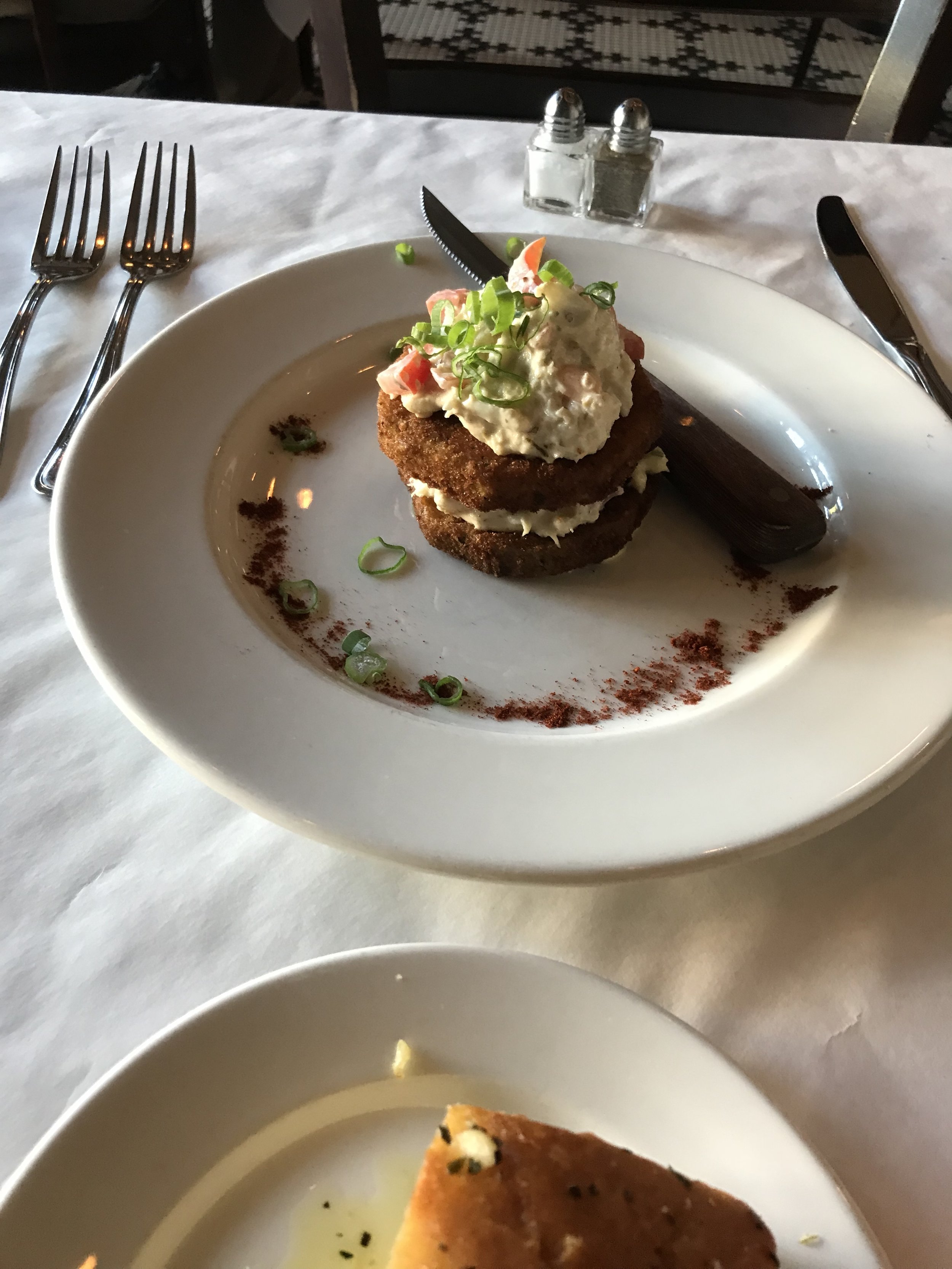

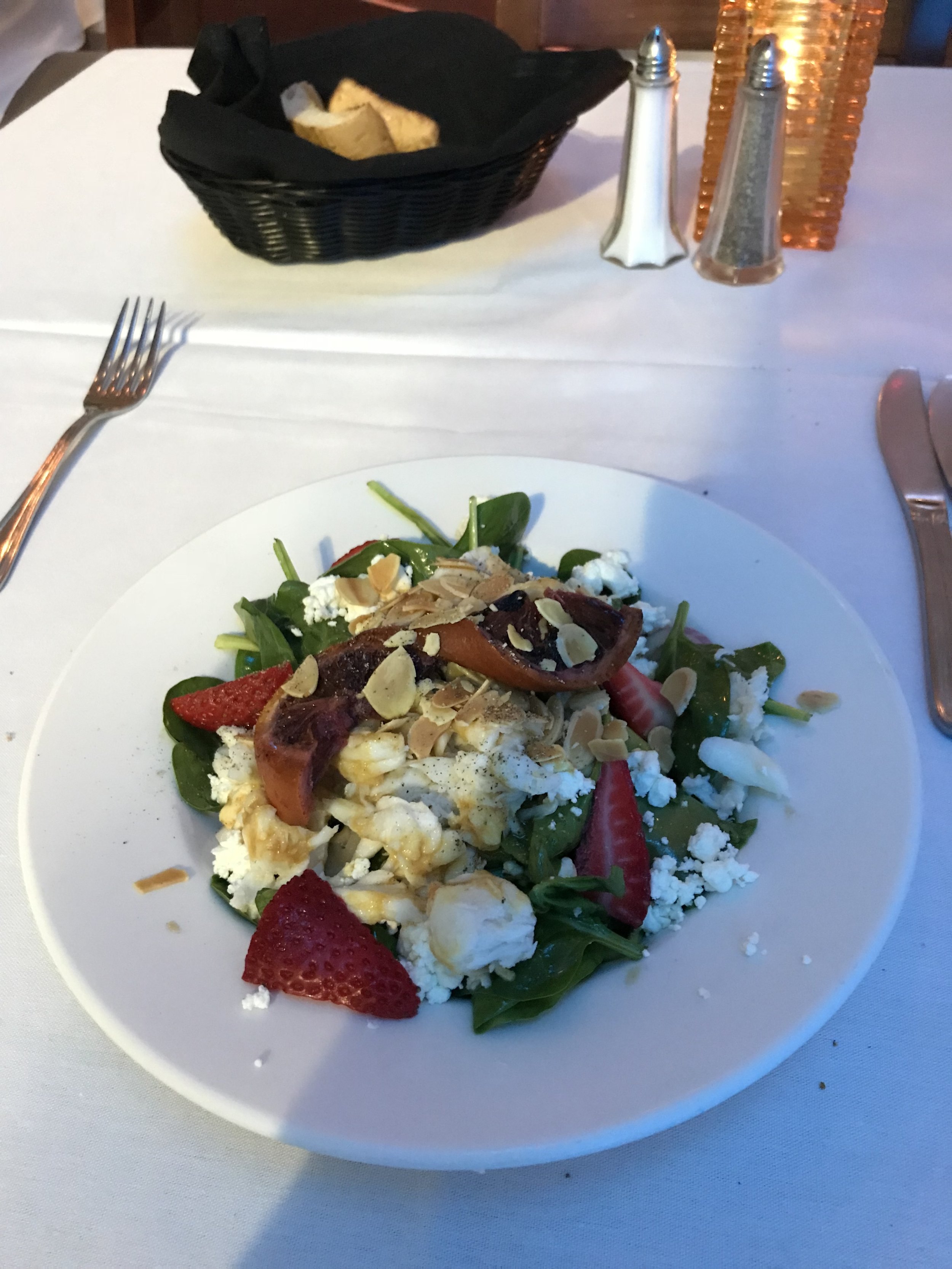
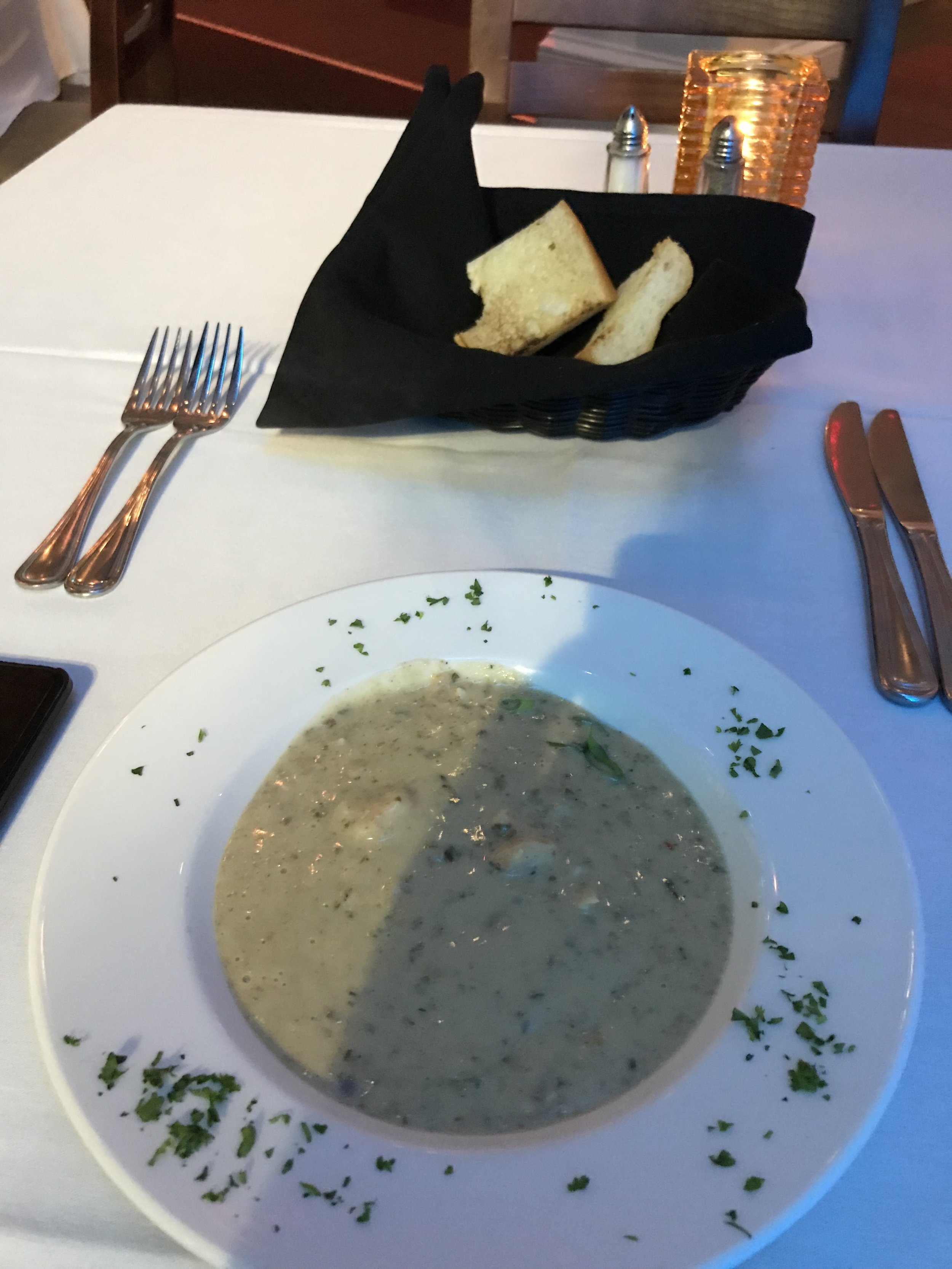
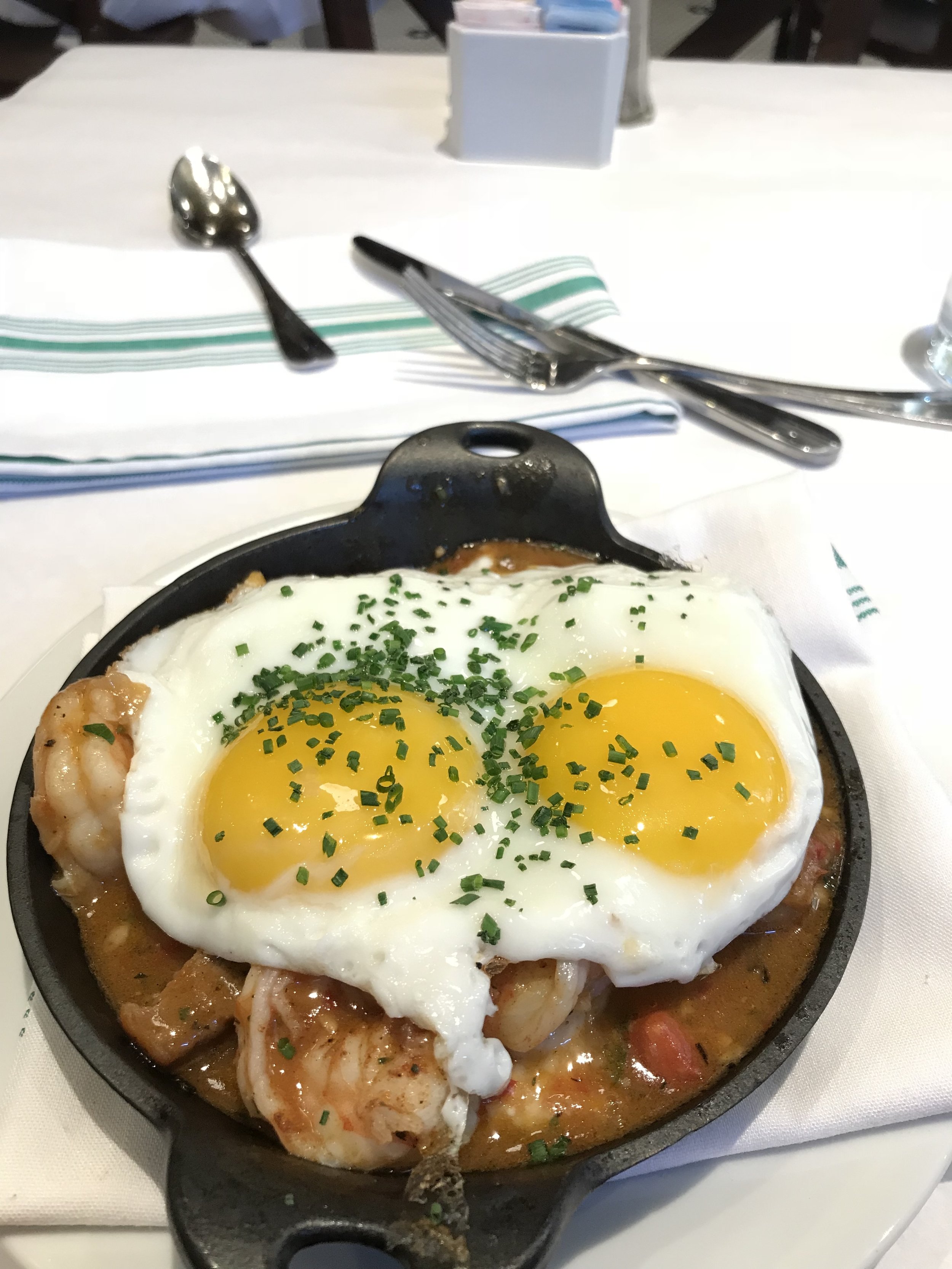
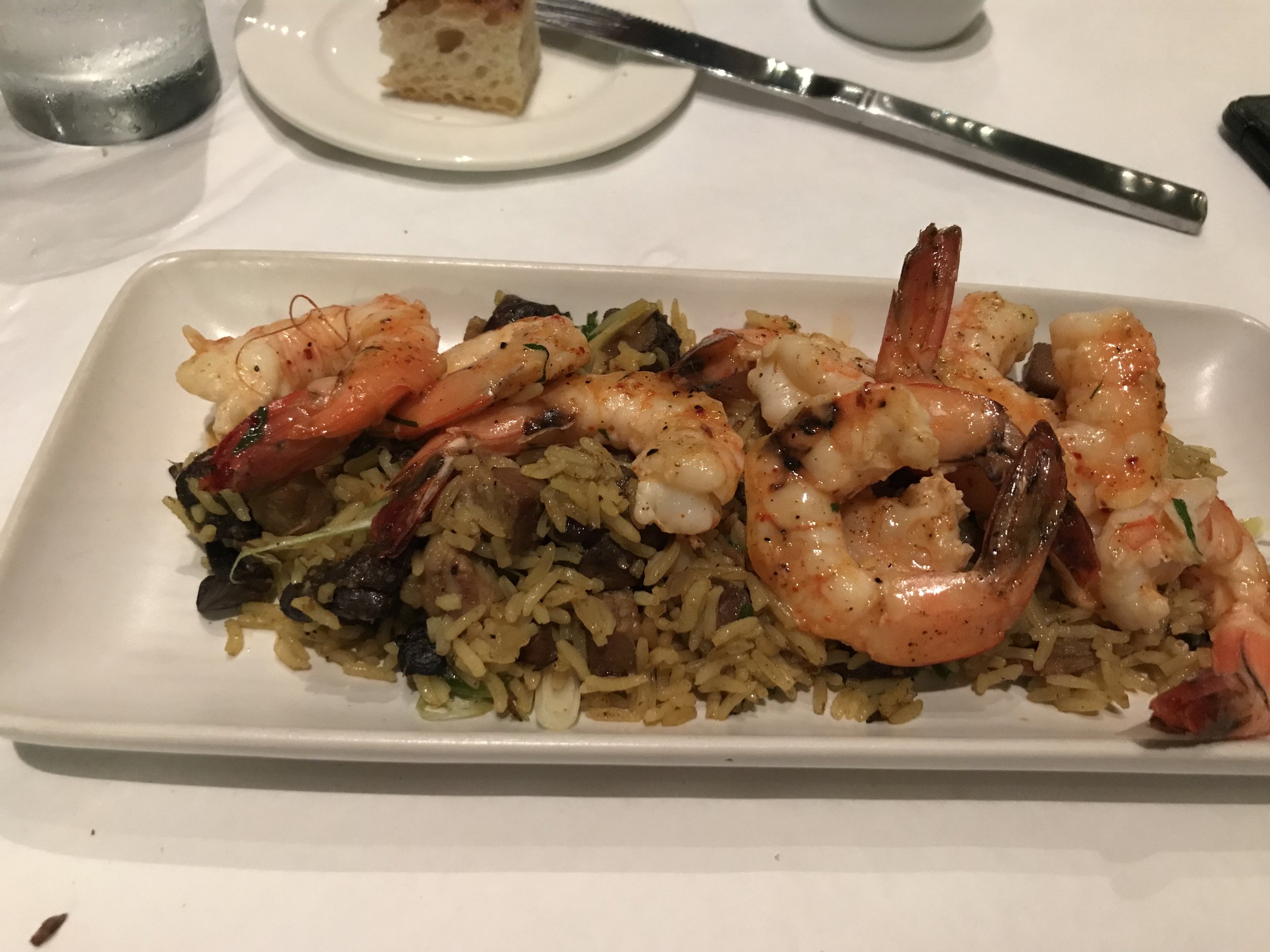

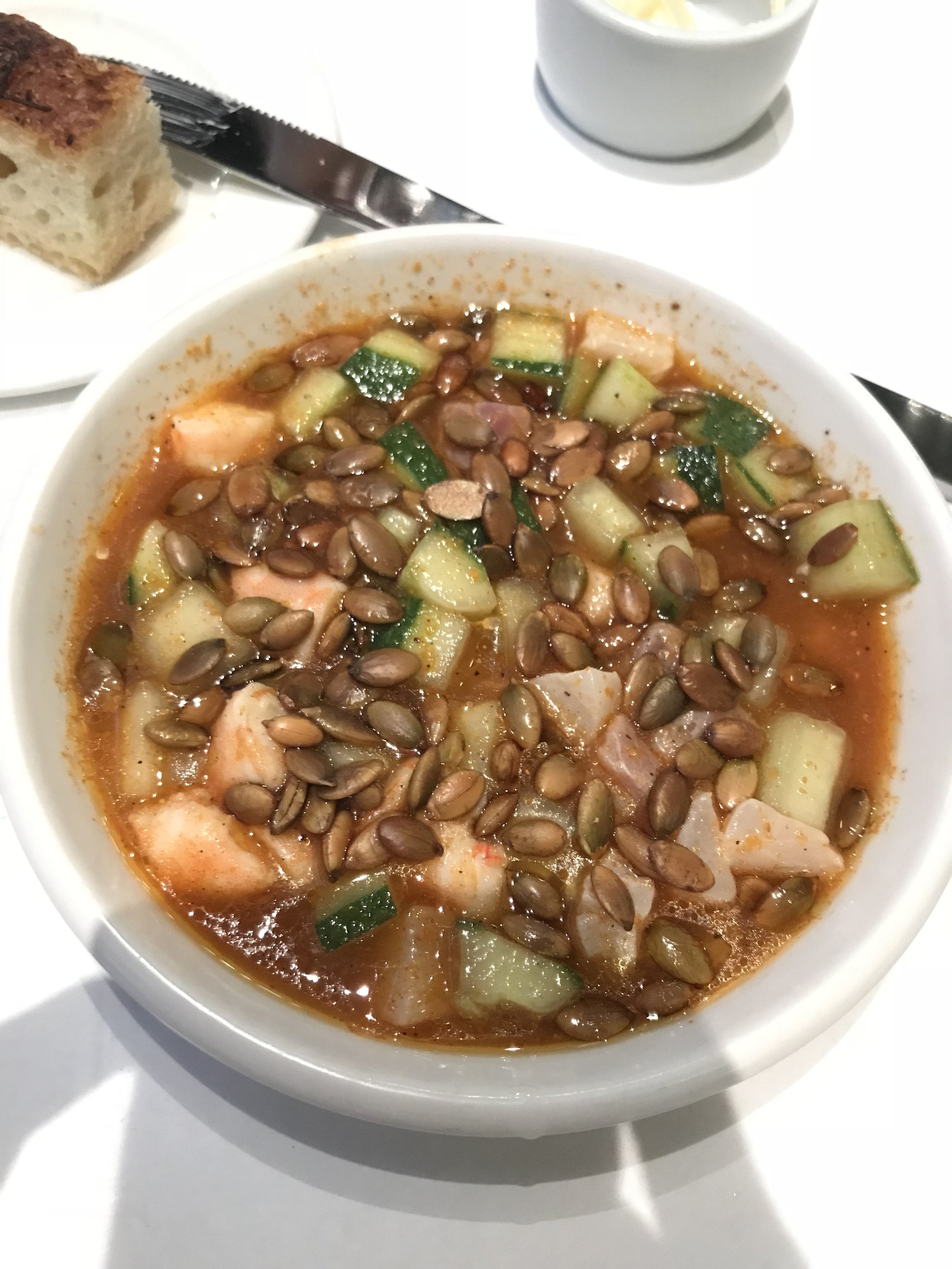
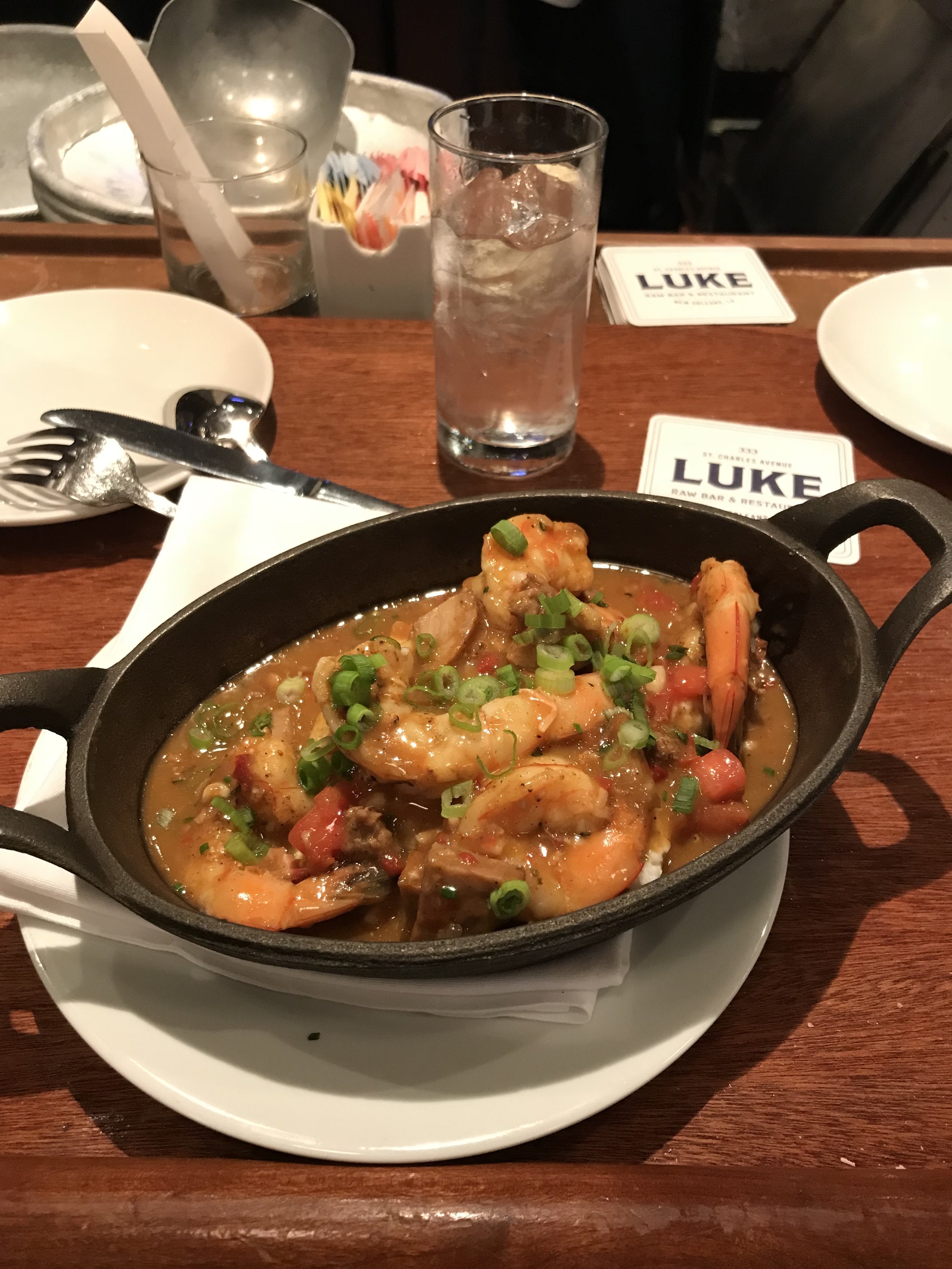
However, one thing that I hate to mention abruptly breaks this pattern. This is the deep-fried cuisine predominant in Grand Isle (or presumably, all over America’s south). To some extend, I do see some values in deep frying. It does make some otherwise boring ingredients tasty. However much I hate to admit it, french fries is just that good so that whenever it is served, people completely forget about the health concerns and calorie intakes or whatever and devour on it. But, I see no value whatsoever in deep-frying every single eatable thing they can dig up on this planet. It’s such a betrayal to those shrimps and oysters and crabs who tried so hard to become so tender and fresh and tasty and prepared to sacrifice themselves to the taste buds of human beings yet only to find out that they are mindlessly thrown into hot oils and eat alone with the damned ketchup. There are a million ways to cook a chicken in China, and seems like there is only one way to cook a chicken here. If I’m a chicken, I’ll probably choose the more honorable death of being carefully seasoned and stir fried then stewed than chopped into large pieces and deep-fried. There is not even diversity in the chicken heaven here. What a shame. I’m glad that at least there are some sensible cooks in New Orleans, otherwise I would seriously consider the lifestyle of a koala for the rest of my visit.
It was also very interesting for me to find out that one of the waitress in the starfish restaurant, and the owner of yum’s both prefer Chicken over seafood. The waitress actually said that she hates seafood. I was surprised at first that they as people who have easy access to the sea and have no difficulty obtaining the freshest seafood everyday despise it instead. But when I thought about it more, it made perfect sense to me. I’m from northwestern China, in the middle of desert-like mountains thousands of miles from sea, it’s crazy expensive to have any seafood in my hometown. Intriguing, as a consequence, my favorite food has always been seafood. If I have any option for fish or shrimp I wouldn’t even glance at the meat. Perhaps people just value things that are rarer?
Back to the topic at hand. I actually started writing this blog piece after I have read everyone else’s. Apart from the the endless admiration for their poetic writings, it seems to me most people had some sense of “escape from the city” and "awakening" in the sense that they could clear their minds off of stressful things back in the university and focus on enjoying their life on Grand Isle. I think this is a fascinating mindset, as lovely as the life philosophy of "the French people" described by Andrew--the sense of living the life to its full extent by spending every possible moment in enjoyment. I find no better way of describing it than this quote from Melissa: “Life was slow. So slow that each moment seemed to pause briefly, allowing me to stimulate each of my senses and consume that time with gratefulness, knowing it would not return.” Indeed, life was extremely slow on Grand Isle. So slow that Melissa was able to stimulate all of her senses and enjoy it with gratefulness; and so slow that my patience was running seriously thin all the time and freaking me out. Whether it was at the JoBob’s or Subway, the owners are really taking their time for each order, seriously reminding me of the sloth working in DMV in the movie Zootopia. And here is a funny story: the lady working at Subway literally stared at me for three seconds with a totally confused face as if I just took off my shirt and started dancing Michael Jackson and asked with the most doubtful tone I’ve ever heard: “are you sure you want avocado AND tuna AND chicken?” while deliberately emphasizing and elongating the pronunciation of each conjunction word for the ultimate dramatic effect. After I nodded, she replied “okay, okay, it’s your sandwich, you can eat whatever you want” with a disapproving tone while putting her hands up in the air and and shaking her head as if I just ordered a dead rat sashimi. Her expressions were so funny that I could not stop picturing her going back to home at night and telling her kids in that exact same tone: “can you believe that? I just met the weirdest guy on entire Grand Isle. He ordered avocado AND tuna AND chicken! Good grace!” Anyways, I witnessed an entirely different business attitude on Grand Isle. An attitude that is relaxed and laid back; that is more stochastic than structured; that is more emotional and attached to personal emotions and feelings than rational and attached to rigid work rules and schedules. And not just on Grand Isle. The private museums we visit in New Orleans hardly follows their business schedule. The lady at the 1850 House simply rejected us even though it’s during open hours; Andrew had to call several times the owners of each museum to make sure that it is operating when we come. It’s just fascinating how local people run business down here. Just imagine a Subway employee making fun of your orders in downtown Manhattan while there is a long line all the way outside the store and you'll know what I'm talking about. Interestingly, it’s not the first time I’ve seen this kinds of attitudes. Some villages in China that I’ve been to also have this sense of "slowness" in their attitude. It seems like the quick tempo becomes a unique characteristic of the city life. For most of my fellow bloggers, such slowing down of the tempo and relaxation was great. However, I personally find it hard to deal with this sluggishness down here. Down in Grand Isle, it is supposed to be the relaxation and journey to explore ourselves without any forced schedule, but I had to force myself into having a schedule in order to stay active. I need to know from what time I should be swimming in order to get back for lunch in time; in what pace should I be reading the novel in order to finish it before group discussion; when I need to get up and take the shower before seminars, etc. So quite opposite to, for example, Ryan who totally refreshed her mind in the freedom that Grand Isle offers, I had to force myself into that school pattern in order to feel alive and not rot in my bed doing nothing. I guess in some sense, my stress comes from not knowing what to do exactly and the way to ease my stress is to have everything figured out. Therefore, when Andrew compares the “British mentality” and the “French mentality”, I slapped my forehead and realized that I have the exact mind setting as the prior example: whenever I’m not working, I’m wasting my life away.
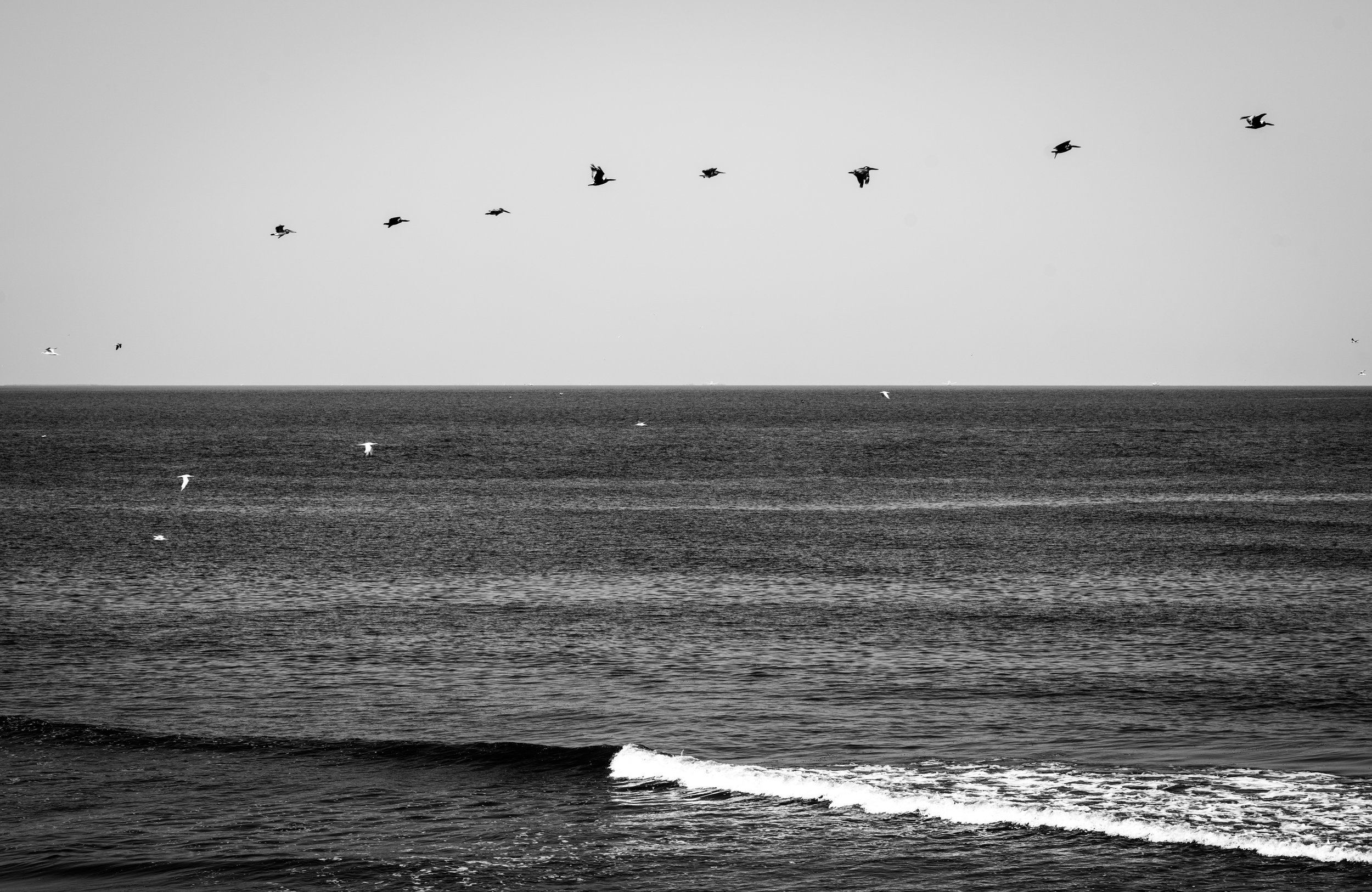
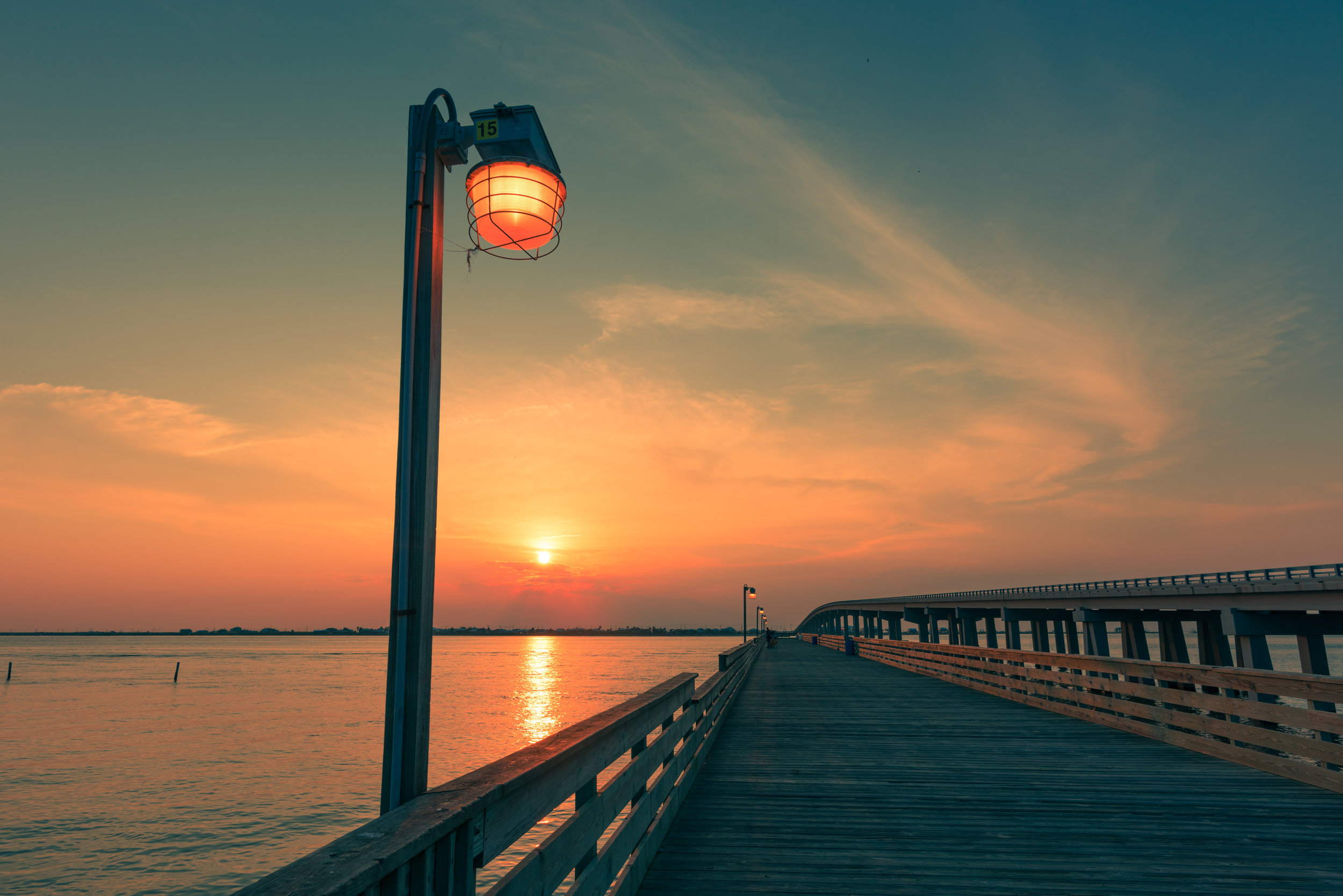

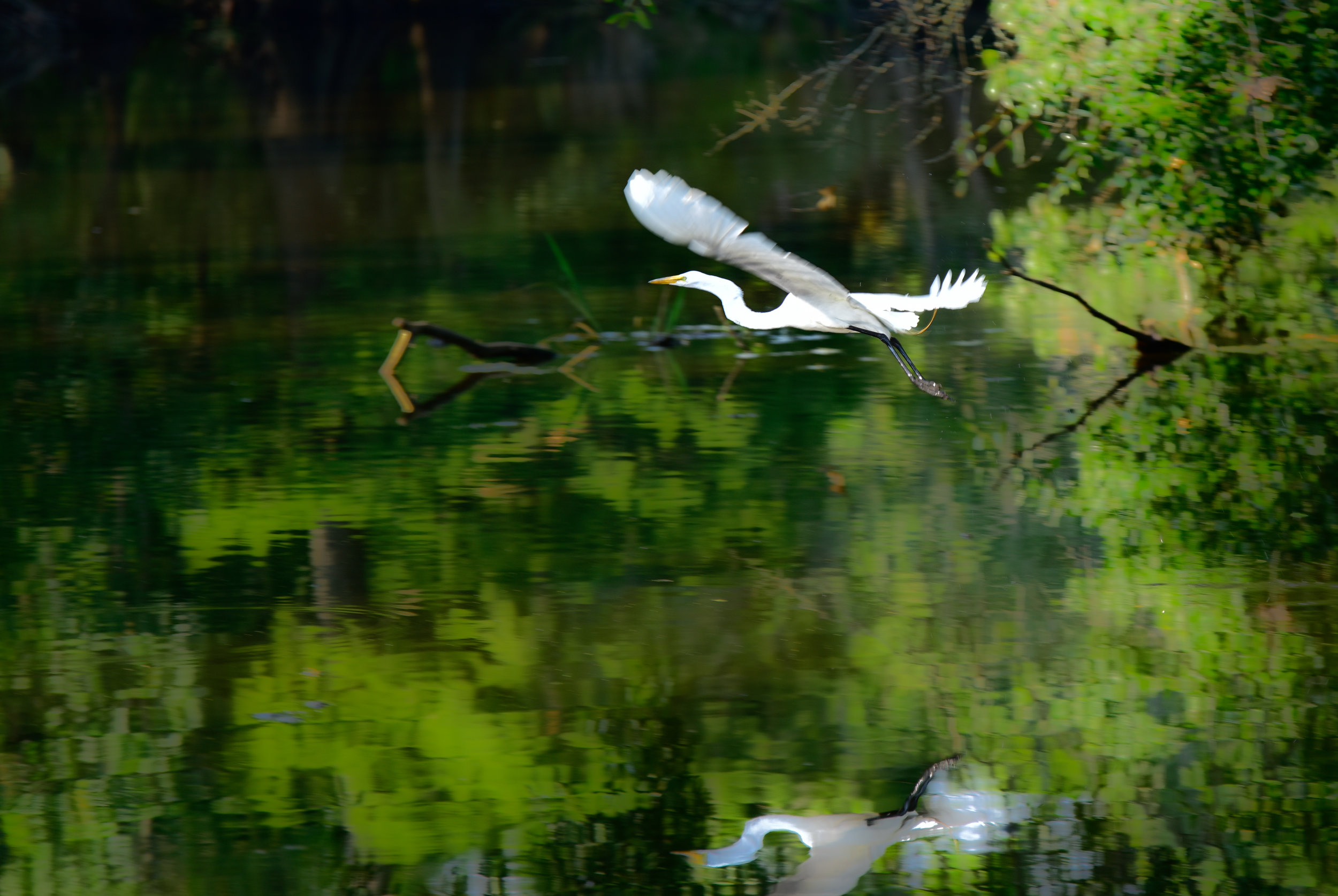
So I began to let loose of my minds. Go to the beaches just for the purpose of going to the beaches; quietly watching the sunset without constantly seeking for a camera spot and worrying about exposure bracketing. Almost every single of my action was calculated with cost and benefit: “if I go to the beach, would I have enough time left to read?”, “If I go take pictures at the pond, do I have time to go back and capture the sunset at the beach?”. Then I started to let go of the careful calculations and follow my feelings. If I feel like swimming at the moment, I go for it, not caring what do to after. Would I call this my own “awakening” like Edna? Maybe not (Well, to be fair, Edna always has her awakening moment after sleep. This never happens to me. I need to think hard to realize something.) I believe that human life is fluid and dynamic, maybe there is a “better” choice at the moment, but there is definitely no purely black or white in life, and there is no walking from one extreme to the other either. We make changes as we go. Some incidences may seem dramatic at the moment, but as trivial as a sand on the beach when we look back later on. As long as we are not stubborn and embrace any changes that could benefits us, we can live a happy life. To me, there is one thing that is the same for “the British person” and “the French person”: the pursuit for happiness. They just defined it differently. Maybe the British person values happiness in the future more than the French person, whom in turn values happiness at the moment more than his/her opponent. We don’t have to completely ditch our own ways of life and fantasize the others’. Maybe the constantly working British person is the one who gets more bread and laughs till the end, and the romantic French girl cannot enjoy her life in the coffee shop anymore because she is unemployed and cannot feed herself. Maybe we'll end up like Edna if we become too extreme. Maybe Edna died with utmost happiness. Who knows. Life is in our own hands and it's up to ourselves to seize it.
I look forward to the journey ahead.
